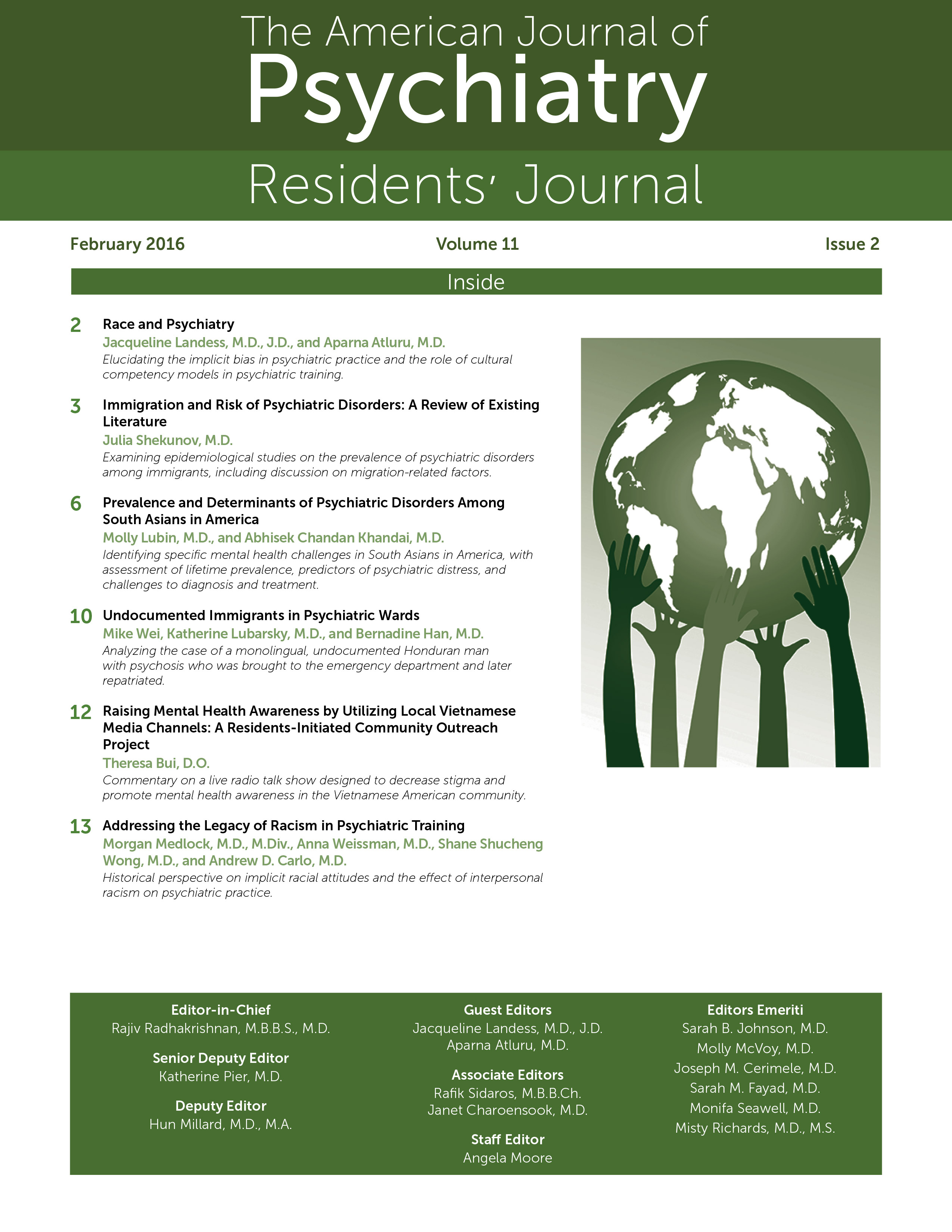Throughout history, race and ethnicity have been powerful social constructs used to both unite individuals with a shared history, culture, and beliefs and also stigmatize these same groups of individuals due to their perceived physical, ideological, and social differences. The concept of race must be used cautiously, as the idea that “inhabitants of a geographical or political region belong to a certain ‘culture’ tends to ignore diversity and to suggest a homogeneity, which can unconsciously extend into the realm of biological similarities and differences” (
1).
As physicians, we pride ourselves on providing uniformly equal, fair, and conscientious care to our patients, regardless of their skin color, religion, or social background. But even if we are trained in cultural competency, implicit bias still creeps in. For instance, a 2004 study showed that race was the demographic characteristic most associated with a diagnosis of schizophrenia: “Race appears to matter and still appears to adversely pervade the clinical encounter, whether consciously or not” (
2). Examples abound: the Hispanic patient diagnosed with a paranoid delusion because of legitimate fears of gang retaliation or an African American patient misdiagnosed as psychotic rather than depressed due to “negative symptoms.” It is a human inclination to see the world through the lens of our own lived experiences, but as psychiatrists we often demand more of ourselves. We attempt to suspend our inferences, assumptions, and judgments in order to truly hear and understand what our patients are saying.
Perhaps in response to some of these challenges, graduate medical education has increasingly emphasized cultural competency training. One message appears to be that while we strive to be color blind, we should remain color and culture conscious. For instance, a resident may be taught in cultural competency training that many Indian Americans are Hindu, and then he or she is taught the major tenets of Hinduism. This resident may then be asked to evaluate a South Asian patient on a busy night in the emergency room. The resident may, in his or her haste, assume certain facts about the patient given the patient’s outward appearance and race. If the patient identifies as Hindu, the resident may assume he or she knows even more about the patient’s background and experiences. Where then does the stereotyping begin and cultural competency end? When does inappropriate cultural bias and gross overgeneralization thwart honest attempts at providing culturally informed clinical care?
Some have suggested that cultural competency models as they exist are used more to end a conversation rather than start one; students may “materialize the models as a kind of substance or measurement (like hemoglobin, blood pressure, or X-rays).” Kleinman and Benson (
3) further state that “the moment when the human experience of illness is recast into technical disease categories something crucial to experience is lost.”
Despite these challenges, trainees should not be fearful or reticent in their attempts to deliver culturally competent care; however, cultural competency should not be a pretext for reckless stereotyping. Unfortunately, there are no shortcuts or quick categorizations that allow us to build a true therapeutic alliance and rapport with any individual patient. Obtaining general knowledge about ethnicities and cultures is simply one of many steps in providing truly “culturally informed” care. There is simply no substitute for listening, asking, and attempting to understand an individual patient’s perception of race, ethnicity, and experiences within society.
